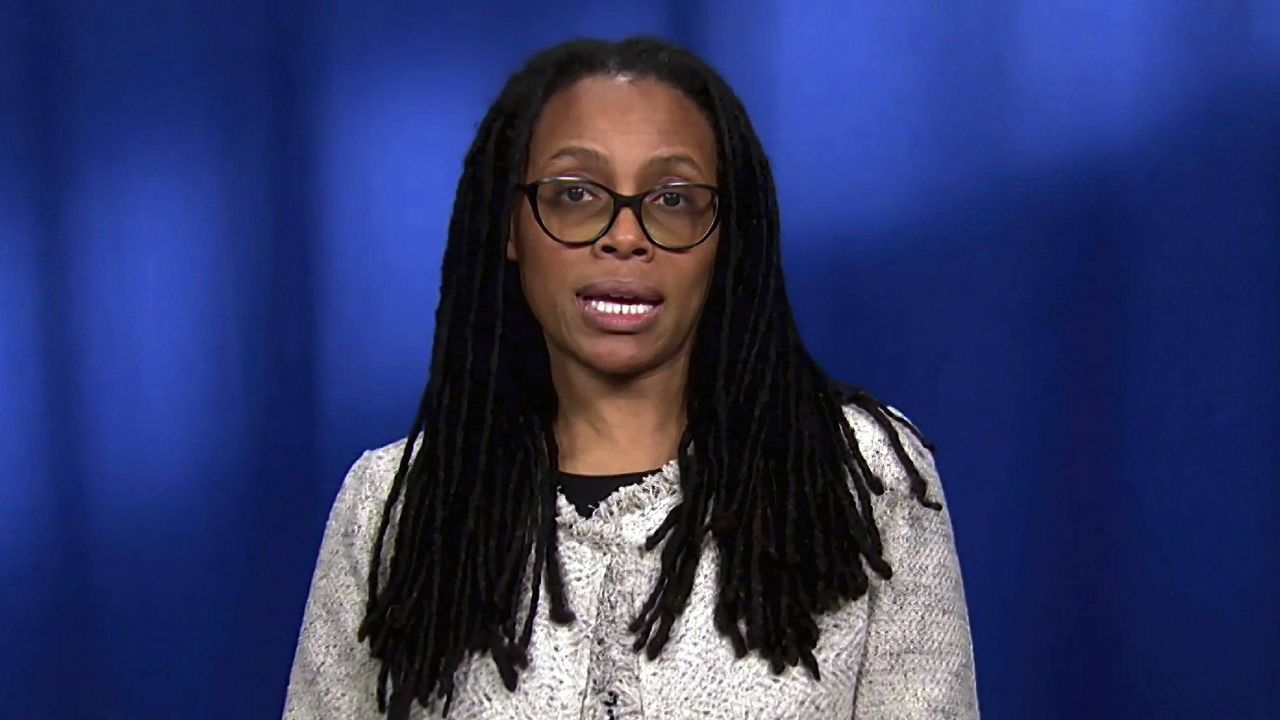The White House’s top COVID-19 adviser on equity said Monday that health officials are worried about an “uneven” recovery from the pandemic due to lower rates of vaccinations in some parts of the U.S. and the contagious delta variant now circulating the country.
Dr. Marcella Nunez-Smith, chair of the COVID-19 Health Equity Task Force, said in an interview with Spectrum News that the administration was closely watching the new variant, which was first discovered in India, and that increasing vaccinations was the first step to countering its spread.
“We have the opportunity to really choose our own adventure here,” she said. “The more people get vaccinated and the quicker we do it — that is our guarantee against any harmful consequence from the delta variant, or quite frankly, any future variants.”
The variant currently makes up about 6% of new cases in the U.S., and it’s thought to be the most transmissible yet, more than the mutation first detected in the U.K., B.1.1.7.
Pfizer’s vaccine was found to be 96% effective against hospitalization from the delta variant, according to an analysis by the U.K.’s public health authority. The Moderna and Johnson & Johnson vaccines haven’t been studied in the same way, but Dr. Nunez-Smith said the evidence points to their effectiveness against variants as well.
On Monday, Vice President Kamala Harris kicked off a tour to encourage people to get their shot, focused in southern states where the vaccination rates are lower.
Dr. Nunez-Smith said those communities could be at a higher risk for outbreaks.
“We are worried. We want this to be an even recovery,” she said. “What we see right now is the potential for unevenness.”
The administration has launched a national “month of action” to push Americans to get vaccinated and move the country closer to President Biden’s July 4 goal of getting 70% of adults at least one shot.
That push includes a focus on access to the vaccine, including initiatives to provide free child care, extend pharmacy hours, partner with barbershops and beauty salons and a range of other incentives.
“[We’re] making sure that we're identifying what might be actual logistical challenges as well as countering … a tsunami of misinformation targeted at these communities,” Dr. Nunez-Smith said.
Vice President Harris also addressed misinformation while touring vaccination sites in Greenville, South Carolina Monday.
“These vaccines were developed over a decade of research. I know it seems like it happened overnight, but it didn't,” she said.
Health officials have warned that people who are unvaccinated are still at risk of catching the virus and at risk of its severe effects, especially with the newly-circulating delta variant.
Dr. Nunez-Smith told Spectrum News Monday that “we’re not just yet” out of the pandemic and that shots are still critical. She urged vaccinated Americans to talk it through with friends and family who haven’t yet gotten the vaccine.
“This is neighbor to neighbor. We know this is hyper local. It is that sharing of your own vaccination story: What motivated you? Did you have any of those anticipated side effects? Talking about how briefly they lasted,” she said.
She added: “Please share that story. Because really, you might get somebody from ‘maybe’ to ‘yes,’ which is going to make the world of difference.”



